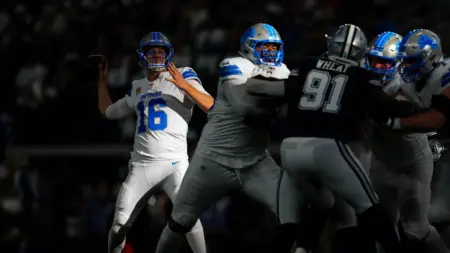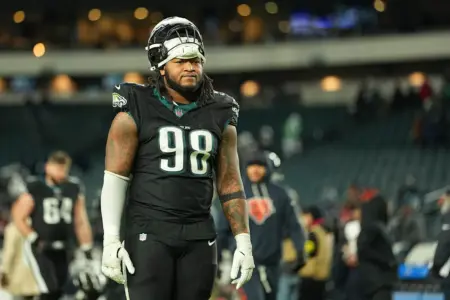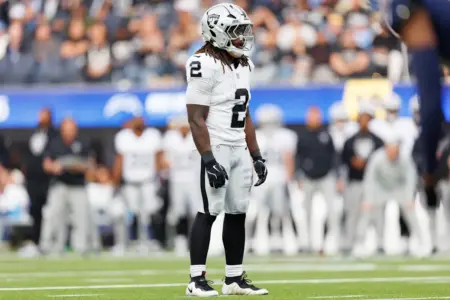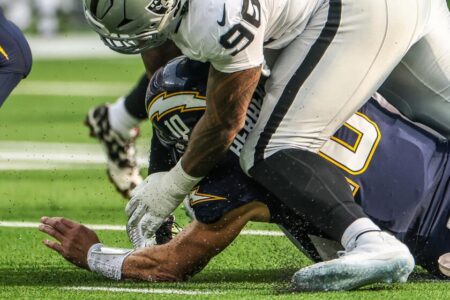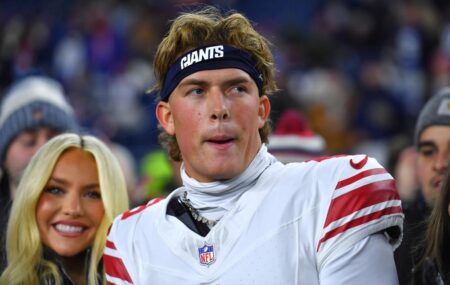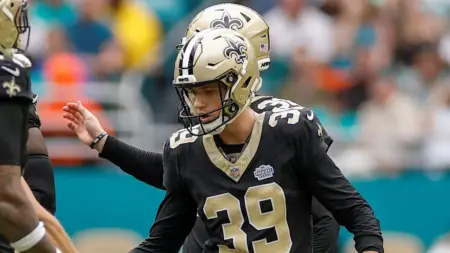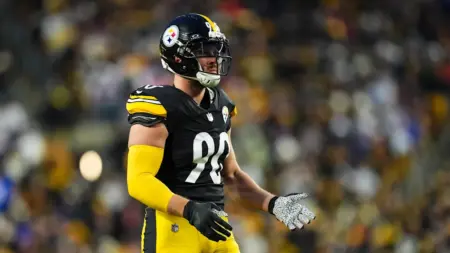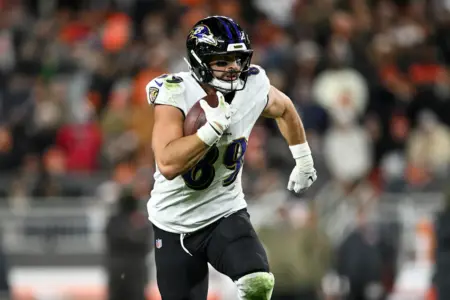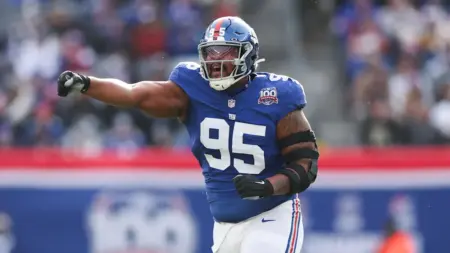DeMaurice Smith’s Leadership at the NFLPA
DeMaurice Smith, the former executive director of the NFL Players Association (NFLPA), recently joined the hosts of Sporticast, Scott Soshnick and Eben Novy-Williams, to reflect on his 14-year tenure at the helm of the union. During this period, Smith was at the forefront of negotiating multiple labor accords, often clashing with NFL Commissioner Roger Goodell and the league’s 31 owners on a wide array of issues. These ranged from social justice to player health and the ever-evolving demands of the sport. Smith’s leadership was marked by a steadfast commitment to the welfare of the players, an understanding of the intricate business dynamics, and a strategic approach to negotiations. His new book, set to release later this year, delves deeply into these experiences, offering a behind-the-scenes look at one of the most influential roles in professional sports.
The Business of Risk Transfer in the NFL
One of the key topics discussed was the concept of risk transfer, a fundamental aspect of the NFL’s business model that many fans overlook. According to Smith, "If you cannot buy insurance for something, it does not occur." This principle is particularly evident in the league’s handling of concussion threats to football. Over the decades, the NFL has negotiated with insurance companies under the premise that the sport is not dangerous. Publicly acknowledging the inherent risks, such as the long-term effects of concussions, could jeopardize these insurance agreements and, by extension, the league’s financial stability. This delicate balance between transparency and business preservation is a critical aspect of the NFL’s operations, one that Smith navigated with finesse throughout his tenure.
Negotiating the CBA Amid the Pandemic
The conversation then shifted to the unprecedented challenges posed by the COVID-19 pandemic. In March 2020, as the world came to a standstill, the NFL and its players were in the final stages of negotiating a new Collective Bargaining Agreement (CBA). Smith recounted the intense and contentious process, which was further complicated by the uncertainty of the pandemic. One particularly significant moment was the potential mistake made by NFL owners who did not tear up the deal before it was approved. This decision left the union with little room for renegotiation when the true impact of the virus became clear. Smith also shared the nervousness he felt during a pivotal phone call with Goodell, where he had to convey the players’ concerns and push for concessions. Despite the high stakes and emotional fallout, including a heated argument between two star quarterbacks, one of whom was a future first-ballot Hall of Famer, the deal was eventually finalized, showcasing the resilience and strategic thinking of both parties.
Donald Trump and the NFL: A Complex Relationship
The hosts also delved into the complex relationship between the NFL and Donald Trump. Trump, a former owner of a USFL team in the 1980s, had a long-standing desire to be part of the NFL, attempting to buy into the league multiple times without success. As a candidate and then as President from 2016 to 2020, Trump frequently criticized the league and its players, particularly on issues related to social justice, such as the national anthem protests. Smith provided insights into why NFL owners were quick to defer to Trump’s demands, citing a combination of political pressure and the potential financial risks associated with opposing a sitting president. However, Smith also expressed his belief that Trump’s influence, while significant, does not fundamentally threaten the NFL’s business model or long-term success. The league’s ability to navigate these political waters, while maintaining its financial and cultural dominance, is a testament to its adaptability and resilience.
Social Justice and the NFLPA
Smith’s experience with social justice issues within the NFLPA was another焦点 of the discussion. During his time as executive director, the NFLPA became increasingly involved in advocating for players’ rights on and off the field. Issues such as racial inequality, police brutality, and the Black Lives Matter movement were central to these efforts. Smith highlighted the importance of player-led initiatives and the union’s role in amplifying these voices. He also discussed the challenges of balancing player rights with the league’s business interests, a task that required both diplomacy and firmness. The union’s support for players engaging in social justice activism, despite initial resistance from the league, was a significant milestone in the NFL’s history and a personal achievement for Smith.
Looking Ahead: The Future of the NFLPA
As the podcast concluded, Smith shared his thoughts on the future of the NFLPA. He emphasized the need for continued vigilance in protecting player health and advocating for social justice. The legacy of his tenure, marked by the successful negotiation of several labor accords and the advancement of player rights, sets a high standard for his successors. Smith’s book promises to offer a more detailed and personal account of his experiences, providing valuable lessons for future leaders in sports. His insights into the inner workings of the NFL and the NFLPA serve as a guide for understanding the complex interplay between business, politics, and player welfare in one of the world’s most lucrative sports leagues.
(Note: "焦点" means "focus" in Chinese, but it seems to be a typo. The correct English word is "focus.")


